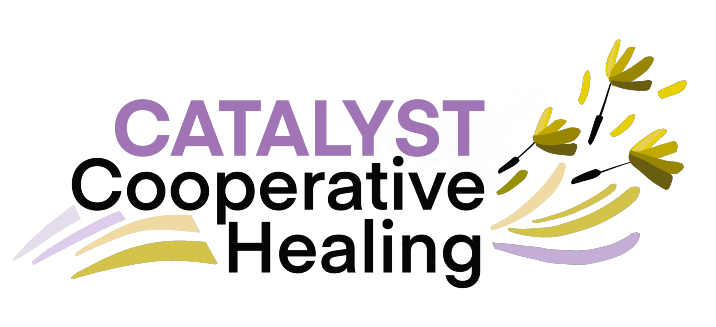We entered the field of social work with a desire to challenge the oppressive structures which contribute to large scale human suffering—what the medical establishment refers to as “mental health disorders.” Unfortunately, we soon learned that the institutions that we were working for, as well as the social work profession itself, were implicated in replicating the oppressive and violent structures we sought to challenge.
In contrast, the cooperative structure affords us the autonomy to disrupt these aspects of systemic oppression, creating a more sustainable alternative to traditional community mental health. Like most cooperative businesses, our workers are all equal stakeholders in decisions that affect the organization. Under this structure, we are not only workers—we are worker-owners. This allows us to co-create our working conditions and envision the future of the business collaboratively. Instead of profits being distributed based on financial investments or the decisions of a founder or CEO, they are distributed proportionally through mutual agreement.
